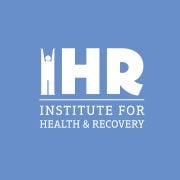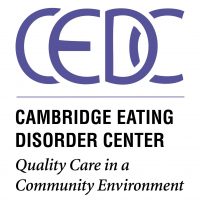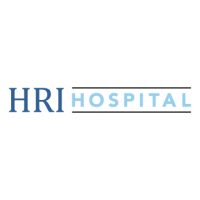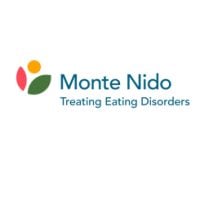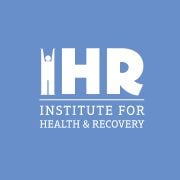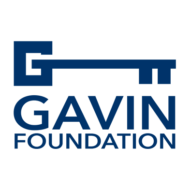About This Cambridge, MA Facility
The Institute for Health and Recovery, located in Cambridge, MA, has been providing comprehensive treatment services for individuals with substance use and mental health disorders since 1991. The Institute specializes in substance use treatment for individuals struggling with alcohol and opioid use, as well as individuals with co-occurring disorders. The Institute offers a range of evidence-based treatment services, such as aftercare support, drug rehab, dual-diagnosis treatment, intervention, and outpatient services. Treatment at the Institute is individualized to meet the needs of each person, and it includes cognitive behavioral therapy, dialectical behavioral therapy, couples therapy, family therapy, group therapy, and trauma therapy. The Institute is accredited by CARF, SAMHSA, and the State License, and it accepts private health insurance.
The Institute for Health and Recovery also provides additional services including HIV/AIDS education, naloxone and overdose education, employment counseling/training, and motivational interviewing. The Institute's multidisciplinary team of professionals works collaboratively to create a safe, supportive, and nurturing environment in which individuals can work toward recovery. Through a combination of evidence-based treatment, individualized care, and a supportive team, the Institute for Health and Recovery is dedicated to helping individuals create long-lasting and meaningful recoveries.
Genders
Ages
Modality
Additional
Accreditations
State License
SAMHSA

CARF
The Commission on Accreditation of Rehabilitation Facilities (CARF) is a non-profit organization that specifically accredits rehab organizations. Founded in 1966, CARF's, mission is to help service providers like rehab facilities maintain high standards of care.
Conditions and Issues Treated
Recovering from any type of substance abuse is a long process, but it is one of the most worthwhile and life changing events any addicted person will ever go through. This is a combination of detoxing the body, rehabilitation, and recovery. There is also therapy, aftercare, and support during the entire process.
While substance abuse can take over a person’s life, it is something that can also be overcame by professionals at Institute for Health and Recovery in Cambridge, MA
With so many people struggling with opioid addiction, opioid addiction treatment is more critical than ever before. Patients often take opioids when they face a painful injury. When someone begins taking opioids such as Vicodin or oxycodone differently than how the medications were prescribed, this points to opioid addiction.
Stopping these types of medications abruptly is not safe. That is where opioid addiction treatment at Institute for Health and Recovery in Cambridge, MA comes in. Most opioid addiction treatment facilities start with detox and move to rehabilitation services while providing medical support during the process.
Getting over an opioid addiction takes time and determination, but with the right support and resources, those struggling with opioid addiction can recover and move forward with their lives.
Addiction is often caused by an underlying issue. Mental illnesses like schizophrenia, bipolar disorder or anxiety disorder could lie at the root. A dual diagnosis by Institute for Health and Recovery aims to treat the addiction as well as the cause of the addiction. This ensures the patient will not fall back on old ways after treatment is complete.
Levels of Care Offered
This center offers a variety of custom treatment tailored to individual recovery. Currently available are Aftercare Support, Drug Rehab, Dual-Diagnosis, Intervention, Outpatient, with additional therapies available as listed below.
Outpatient treatment can be considered the lowest intensity level of addiction treatment in Cambridge, MA. It is ideal for early phase addiction or lower intensity addictions. Institute for Health and Recovery peer group support, 12-step programs, and individual counseling may still be involved.
Most people with addiction in Cambridge do not readily recognize that they need help. Family and friends need to take action and express their concern over their loved one’s well-being. It’s best to seek specialists like Institute for Health and Recovery, who provide intervention services.
Aftercare support plays an important role when sustaining a patient’s full recovery at Institute for Health and Recovery. Patients also receive assistance in making living arrangements in halfway houses. Career counseling is available for those who want a fresh start. There are also local community programs in Cambridge, MA such as Alcoholics Anonymous.
Institute for Health and Recovery‘s Therapies & Programs
Individual professional counseling or individual therapy refers to the one-on-one interaction between a patient and his or her counselor. Individual therapy allows for more privacy, one that group interactions can’t provide. Therefore, it becomes easier for a person to unload and become more open to his or her counselor.
Another benefit of individual therapy at Institute for Health and Recovery in Cambridge, MA is that all sessions aim to speed up a single person’s progress. It makes it easier for the counselor and the patient to deal with the central issues, which are likely the culprits of substance addiction.
Once the roots of the problems are addressed, it becomes less challenging for a recovering patient to maintain sobriety and brush off temptations.
Families are not always as supportive as they could be, but by opting for family therapy, many recovering addicts are able to understand their addiction and get the support they need to get sober. These therapy sessions at Institute for Health and Recovery in Cambridge, MA involve all members of the family who play a role in the recovering person’s daily life. They work together to overcome past issues, avoid triggers, and remain strong and supportive of each other.
In group therapy, the patient undergoes sessions with other patients dealing with similar problems under the guidance of a trained counselor. The members of the group interact with each other and talk freely about their issues. The recovery of members of the group from the problems that they face gives the patients confidence that they can also overcome their addiction.
Group therapy at Institute for Health and Recovery reduces the feeling of loneliness and improves the coping skills of the patients. Group therapy provides patients with continuous feedback from other members. The group dynamics ensure that members start having some structure and routine in their lives.
Dialectical behavior therapy (DBT) is a method of individual and/or group counseling that focuses on acceptance and change. DBT can be very effective in developing coping strategies for negative emotions.
Cognitive behavioral therapy (CBT) is a way of addressing concerns through talking. Talking through issues can identify sources of discomfort or unhealthy thoughts. CBT is a healthy way Institute for Health and Recovery addresses some behaviors which may be bringing unintended consequences in a persons life.
Payment Options Accepted
For specific insurance or payment methods please contact us.
Is your insurance accepted?
Ask an expert, call (888) 674-0062
Additional Details
Specifics, location, and helpful extra information.
Cambridge, Massachusetts 02139 Phone Number(617) 661-3991 Meta DetailsUpdated November 25, 2023
Staff Verified
Patient Reviews
There are no reviews yet. Be the first one to write one.
Cambridge, Massachusetts Addiction Information
Massachusetts has one of the highest rates of drug abuse in the country. More than half a million Massachusetts residents abuse alcohol while more than 1.5 million use illegal drugs each year. This drug and alcohol usage is the cause of over 8% of all deaths in the state. In 2017, Massachusetts ranked in the top 10 of the states with the highest opioid overdose rates.
The percentage of people who reported using drugs is significantly higher in Cambridge than in the rest of Massachusetts. 4% of teenagers reported using an illicit drug. About 5.5% of adults aged 18 or older reported using marijuana. The most commonly used drugs in Cambridge are marijuana and heroin. Out of many different types of rehab programs available in Cambridge, the most common type is an outpatient program,
Treatment in Nearby Cities
- Arlington, MA (4.1 mi.)
- Chelmsford, MA (20.8 mi.)
- Burlington, MA (10.4 mi.)
- Lincoln, MA (10.9 mi.)
- Cambridge, MA (0.4 mi.)
Centers near Institute for Health and Recovery
The facility name, logo and brand are the property and registered trademarks of Institute for Health and Recovery, and are being used for identification and informational purposes only. Use of these names, logos and brands shall not imply endorsement. RehabNow.org is not affiliated with or sponsored by Institute for Health and Recovery.
